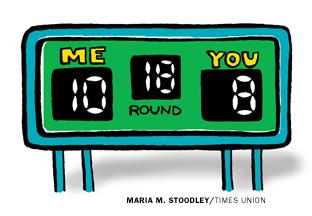“At conference, in boardrooms – it’s always “scale”, “revenue”, “biz”. Let’s talk wisdom, passion, justice, perseverance, humanity, meaning.” — Umair Haque, thinker, blogger, advisor to revolutionaries. (source)
Industries thrive on quantitative measurements. Whether it’s growth rate, subscriber base or gross profit, there’s no question that more is always good.
 The PR industry is no different, as I see long client lists, flashy cars and clothes that show off wealth and walls displaying awards from groups that most people have never heard of. Not that I’m judging these actions, as they obviously provide a direct benefit to potential customers and your bottom line, but I can’t help but think that there might be a better way to gauge success.
The PR industry is no different, as I see long client lists, flashy cars and clothes that show off wealth and walls displaying awards from groups that most people have never heard of. Not that I’m judging these actions, as they obviously provide a direct benefit to potential customers and your bottom line, but I can’t help but think that there might be a better way to gauge success.
Our personal lives are seldom judged with the same criteria. Few people judge their happiness by the size of their friend network. Most don’t enter last year’s neighborly Christmas basket in award ceremonies, nor do they usually expect every interaction to have an ROI.
Those things don’t seem to matter as much. Unless you’re friending to increase social status, which is a profession in itself, most of us don’t care how many previous friends that person has, what their personal mission statement is or what they bring to the table when it’s time to negotiate a relationship with a new friend.
I’m not suggesting everyone pull a Jerry Maguire and shed their client list, downgrade their home and trade in that BMW for a Honda Accord, but doesn’t it seem weird that business is run by humans to benefit humans, yet itself is so inhuman?
Great networkers are certainly aware of this, as collecting contacts just doesn’t work unless you’re always competing on price. They know the value of a great relationship, but how to you communicate that value to your bottom line? Is it a measure of the person’s connectedness? Their attitude? How you feel when you’re around them? Is there a way to qualitatively measure this?
In a time when anonymity and unfamiliarity tend to breed vitriol, I can’t help but think we’d all be a little better off if we all valued our emotion in our professional lives as much as we do our personal ones.
How do you keep score?

One Comment on ““How do you keep score?””
Tyler,
You don’t think people judge success or happiness in their personal lives by how much money, flashy clothes, nice cars and huge McMansions they have? I would suggest (sadly) that that is one of the ways people judge ‘ROI’ in their personal lives.
I also respectfully disagree that ‘more is always better’ when it comes to industry. For example, in my business, having 100,000 blog subscribers who don’t need the services I provide has absolutely no value. However, having 100 subscribers who are in my target market of B2B marketing and sales decision-makers is extremely valuable. Conversely, if I meet someone who has 100,000 Facebook friends on their personal page, there’s no value there. But if I meet someone who’s friends with my ten closest friends on Facebook, their ‘personal’ value shoots through the roof. In both cases, quality is more important than quantity.
In addition, I believe most business decisions have an emotional component to them, just as personal decisions do. They’re just ‘masked’ by the desire for quantitative measurements like ROI, sales growth, etc. Isn’t the emotional component to delivering those metrics the fact that the people who accomplish that growth will get raises and promotions so they can have more money to take care of their family and make them happy in their personal lives?
Thanks,
Jared